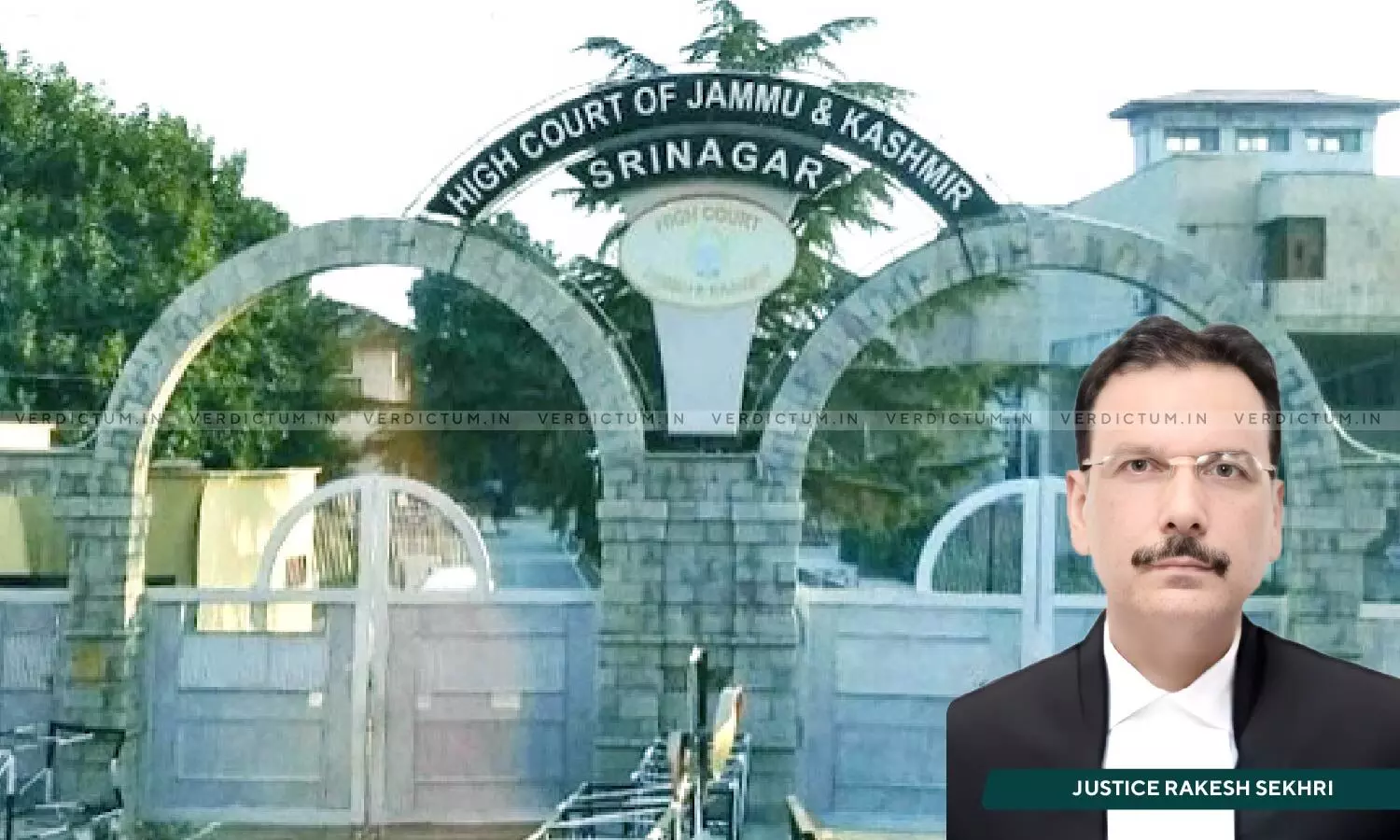
“Did Not Desist From Anti-National Activities”: Jammu & Kashmir & Ladakh High Court Upholds Preventive Detention Of Youth Accused of Aiding LeT, TRF
 |
|The Court noted that the detenue was found instigating youth to join terrorist ranks, providing logistics to banned outfits, and his continued conduct showed that normal laws are not sufficient to deter him.
The Jammu & Kashmir and Ladakh High Court upheld the preventive detention of Tahir Riyaz Dar under the J&K Public Safety Act, 1978, who was detained on the basis of inputs alleging his involvement with terrorist organizations Lashkar-e-Toiba (LeT) and The Resistance Front (TRF) and of instigating others to join militant ranks.
A Single Bench of Justice Rajesh Sekhri observed, “ Despite his release from the detention on various occasions, the detenue continued to indulge in similar activities and did not desist from anti-national activities, as a result he was put on close surveillance, during which it surfaced from reliable agencies that detenue again developed contacts with various terrorist groups and militant outfits to carry out anti-national activities.”
Advocate Wajid Mohammad Haseeb appeared for the Petitioner, while Government Advocate Rekha Wangnoo represented the Respondents.
Brief Facts
The Petitioner, a youth previously arrested in connection with a criminal case during his juvenile years and subsequently released on bail, was detained under the Jammu & Kashmir Public Safety Act. The impugned detention order was passed following intelligence inputs that, post-release, he allegedly resumed anti-national activities.
According to the dossier and grounds of detention, the individual was placed under discreet surveillance. Reports indicated that he had allegedly re-established contact with terrorists operating in the region, facilitated their movement, tracked and relayed the movements of security forces, and provided logistics to banned terror outfits, including Lashkar-e-Toiba (LeT) and The Resistance Front (TRF). He was also said to be motivating local youth to join militant ranks and contribute to revivalist activities aimed at destabilizing peace in the area.
The Petitioner approached the High Court challenging the detention on several grounds, including vagueness of allegations, non-supply of material documents, absence of a translated script in a language understood by him, and violation of Article 22(5) of the Constitution.
Reasoning of the Court
The Court noted the grounds of detention that read, “You have again established your contacts with the terrorists operating in the area and have been transporting the terrorists from one place to another place besides keeping eye on the movement of the security forces/police and keeping the terrorists informed about their movement which has prolonged their sustenance...You have been providing logistic support to the terrorists of banned terrorist Organizations ‘Lashker-e-Toiba (LeT)/The Resistance Front (TRF)’ in a clandestine manner and have also been instigating youth of the area to join the terrorist ranks just to strengthen their caders.”
Rejecting the argument that the grounds were vague and lacked specificity, the Court noted, “The detaining authority is not obliged to provide the date and time of a detenue providing logistics to terrorists organizations or keeping the terrorists informed about the movement of the security forces or police officials. The grounds of detention, in the present case, by no stretch of imagination, can be termed as vague.”
On the issue of representation and Article 22(5), the Court referred to the decision of the Supreme Court in Veeramani v. State of T.N. where it had been held that article does not say to whom such representation is to be made but the right to make a representation, depends on the provisions of the Act and naturally such a representation must be made to the authority who has power to approve, rescind or revoke the decision.”
Addressing the contention regarding non-supply of materials in a language understood by the Petitioner, the Court noted, “Contents of the detention warrant as also the grounds of detention have been read over and explained to the detenue in Urdu/Kashmiri languages, fully understood by him and signatures of the detenue have been obtained as an acknowledgment…”
The Court concluded that the detention order was not punitive but preventive and based on a reasonable prognosis of his future behaviour, based on his past conduct, and in light of the surrounding circumstances.
Accordingly, the Court dismissed the petition and upheld the detention.
Cause Title: Tahir Riyaz Dar v. UT of J&K & Ors. (HCP No. 126/2024)